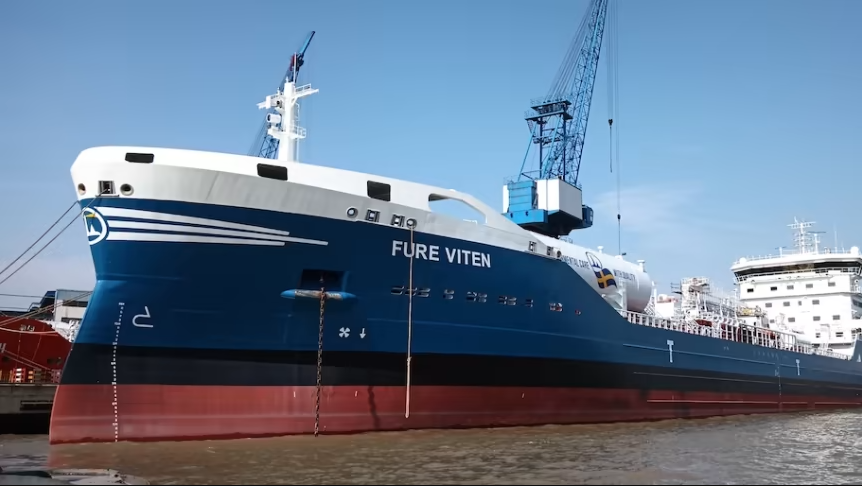Furetank, the Swedish shipping company, has signed an agreement to acquire liquefied biogas (LBG) with Eskilstuna Biogas.
In 2018, Furetank became the first shipping company in Sweden and second in the world to bunker LBG. Since then, the company has developed a new series of vessels that are ‘best in class’ globally, according to the climate standards for shipping set by the International Maritime Organization.
Through this new arrangement, Furetank and Eskilstuna Biogas will develop a new biogas plant. The facility will produce an estimated 5,000 tonnes of LBG annually, with Furetank agreeing to purchase at least 75% of the fuel for 10 years. Gas will be extracted from manure and food waste from the municipalities of Eskilstuna and Strangnas and upgraded to a 100% waste-based, fossil-free and renewable LBG.
According to the report in BioEnergy News, the biogas plant will be the largest environmental investment in Eskilstuna in 20 years and received around SEK 140 million (€13.1 million) in grants from the Swedish Environmental Protection Agency’s support for climate investments.
“In addition to these grants and public production support for biogas, a long-term agreement with a strong partner is required to make this big investment and achieve the large-scale biogas production that we are planning,” said Kaj Wågdahl, Eskilstuna Biogas’s chairman of the board. “It is also very gratifying to find a partner who sees business opportunities in leading the way towards climate neutrality.”
The plant is set to begin production in the last quarter of 2023, in accordance with the launch of the EU Emissions Trading System for shipping.
Furetank’s CEO, Lars Höglund, commented: “It feels fantastic to access LBG in Sweden. With LBG produced in the right way, we can run our vessels completely without emitting CO2 or harmful particles.
“This is a strategic move. We developed the new efficient vessels, chose gas as a fuel and offset remaining emissions. Now, we move on to securing our own supply of LBG.”






